49 Summer Reads
From The Kenyon Review - June 4, 2015
“It is what you read when you don’t have to that determines what you will be when you can’t help it.”
—Oscar Wilde
What is summer reading, after all, if not “what we read when we don’t have to” — because it sounds intriguing, because we’ve always wanted to, because the kids are at camp, because there’s an hour yet until a lazy dinner, or just because. Looking for inspiration? Take it from the bookshelves of our ever-reading staff:
David Lynn '76, Editor
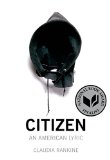
Citizen: An American Lyric by Claudia Rankine is an extended prose-poem meditation that is a soul-scorching testament. I do not say lightly that this intense, beautiful book has changed the way I understand my own place in our society, especially in relation to others.
Each of the short stories in The Assassination of Margaret Thatcher by Hilary Mantel is strange, disorienting, quirky. A brilliant example of fiction and nonfiction driven together into explosive revelation, this volume will astonish anyone who thinks Mantel can only create Renaissance pot boilers.
Who would have imagined our old friend Hawkeye as a distinguished playwright? Indeed, in his remarkable play Radiance, Alan Alda weaves the multiple meanings of its subtitle, The Passion of Marie Curie, into a subtle, potent drama.
Finally, Here by Richard McGuire is also a meditation, but this in graphic novel form, creatively portraying a particular scene/landscape/apartment over hundreds and even thousands of years. Nothing less than a graphic/narrative tour de force.
David Baker, Poetry Editor
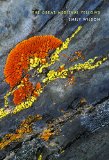
April was National Poetry Month and so there are many brand-new books of poetry to turn to. OK, it was National Frog Month, too, but what can I say — here are two terrific poetry books I suggest and one other book I can’t categorize.
Emily Wilson’s The Great Medieval Yellows is microscopic in its detail and its style — close-up inspections of natural things like peony buds, black fungi, flocks of starlings. She’s a naturalist, an eco-poet, and it’s the uncanny precision of her language as well as her imagery that impresses me so much.
Joanna Klink’s Excerpts from a Secret Prophecy is as wind-blown and desolate as Wilson’s book is crammed and particular. It’s a deep poetic meditation on self and solitude, following the radical rupture of divorce. But it’s far less heartbroken and self-pitying than powerfully curious, lyrically gorgeous.
For prose I suggest the terrific The Argonauts by Maggie Nelson. This is my favorite Nelson book to date, though I don’t even know what to call it. A monograph on gender studies and futurity? Creative nonfiction or maybe memoir? Prose poetry? A kind of sexy new auto-novel retelling the author’s relationship and marriage to Harry Dodge, a “fluidly gendered” artist, and their family of children, step-children, and queer friends? It’s blazing smart, soulful, confessional, assertive, and lucid. What genre it is is not important, and that’s its point.
Caitlin Horrocks '02, Fiction Editor
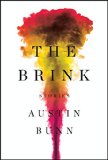
It’s impossible to describe Austin Bunn’s story collection, The Brink, in sentences that do justice to Bunn’s sentences. The language in his stories is delicious, every page offering description and dialogue that is precise, surprising and fun. You find yourself thinking, I never would have described a fern like that, but of course that’s exactly the way that fern would look and smell and feel. Then you read further and appreciate just how deep and wide Bunn’s perceptiveness runs: I never would have thought to describe childhood as he does in the opening story, but of course that’s exactly the way it feels. Bunn pairs these strengths with plots that are gripping and suspenseful, where entire lives and worlds are at stake. These are memorable stories that manage to be both fun and deeply affecting.
Geeta Kothari, Nonfiction Editor
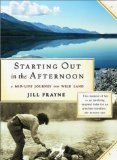
Jill Frayne writes, “We stress ourselves in order to change, and this time I’d chose solitude and wild land as the forge.” Restless and unhappy with her life, Frayne packs up her car on the eve of her daughter’s graduation from high school and begins a journey from Southern Ontario to the Yukon. Starting Out In the Afternoon: A Mid-Life Journey into Wild Land is a memoir of her 1990 adventure lasting three months and taking her through the Pacific Northwest and Alaska. The solitude results in an interior journey to match the outer one. At times, the only thing that might interrupt her silence and solitude is “the chortle of ravens and the screech of a young eagle ricocheting through the trees.”
Completely different in tone and form but just as engaging is Elissa Washuta’s My Body Is a Book of Rules. Washuta, a member of the Cascade Indian tribe, intersperses her narrative of growing up in New Jersey with essays using lists and found structures, such as a Match.com profile. I found the collection difficult to read but impossible to put down. Washuta’s writing is intimate and fierce as she deals with issues of identity, trauma and mental illness.
Sergei Lobanov-Rostovsky, Associate Editor
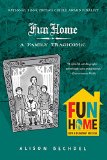
“Bless thee, Bottom, bless thee. Thou art translated.” I seem to be reading translated things lately, and they have me transfixed. Always last at the party, I’ve finally found my way to Alison Bechdel’s graphic memoir Fun Home. I’m fascinated by how Bechdel’s “family tragicomic” translates the narratives that shaped her parents’ marriage — novels by Fitzgerald and James, The Taming of the Shrew, Proust, even the dictionary — into the fragile and imperfect lives that seem caught like moths against a window pane in her panels. Alongside it, I’m reading Patrick Modiano’s Missing Person, translated by Daniel Weissbort, which has been reissued in the wake of Modiano’s 2014 Nobel Prize. Missing Person won the Prix Goncourt when it first appeared back in 1978, but like much of Modiano’s work, it’s been as hard to find for American readers as the clues to a lost self for which the detective searches in this strange and haunting roman noir. Like Bottom, French detectives want to play all the parts: private eye, existential philosopher, bewildered client, poète maudit. And like Bottom, they find something lovely and profound in this base form, translated into high literary art by the French fascination for the hard-boiled American detective novel. Somebody get me a Gauloises.
Natalie Shapero, Associate Editor
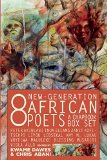
I’ve been spending time with Eight New-Generation African Poets, a chapbook set edited by Kwame Dawes and Chris Abani. In particular, I recommend the selection of poems by Vuyelwa Maluleke, full of devastating pronouncements. Also recommended is Colm Toibin’s quietly powerful On Elizabeth Bishop. I feel like I’ve read a fair amount of writing on Bishop that gets into her (complex, tragic) personal life only glancingly; this is not that, so get ready to get heavy.
G.C. Waldrep, Editor at Large

The two most striking poetry collections I’ve read in 2015 thus far are Richard Siken’s War of the Foxes (Copper Canyon) and the The Collected Poems of Chika Sagawa, translated by Sawako Nakayasu (Canarium). Siken’s collection is on the short side, but it is satisfyingly dense — I actually like it much, much more than his widely praised debut. As for the Sagawa, anyone interested in Modernism, Japanese culture or literature, and/or the idea of a feminist poetics needs to read this book. It’s challenging and splendid.
For those with more adventuresome tastes, I recommend Sawako Nakayasu’s other translation this year: Costume en Face (Ugly Duckling), which is not a poetry collection per se but a translation of butoh dance notations as inscribed by Moe Yamamoto working under the direction of butoh pioneer Tatsumi Hijikata. It’s a translation tour de force, and the recurring images (as in butoh itself) linger in my mind with ghostly persistence.
Abigail Wadsworth Serfass, Managing Editor
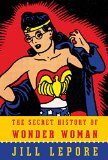
Here are my top reads from Spring 2015:
Literary Fiction: All the Light We Cannot See, by Anthony Doerr, which struck me as a happy cross between the plots and atmospheres of The Goldfinch and Life After Life.
Nonfiction: The Secret History of Wonder Woman by Jill Lepore, a fascinating survey of the different waves of 20th-century feminism.
Mystery: Still Life, A Fatal Grace and The Cruelest Month by Louise Penny — I was turned onto Penny by Kenyon’s bookstore manager, and I can’t believe I’d never heard of her before. Her Chief Inspector Armand Gamache is right up there with P.D. James’ Adam Dalgliesh.
Anna Duke Reach, Director of Programs
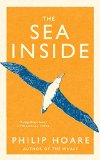
Loitering, by Charles D’Ambrosio. Desperation seeks redemption in these essays about family undone by suicide, Seattle before it was stylish, reading and misreading, keen observations about nature, human nature, and popular culture. Isolation is a dominant theme. His insights are often dark, sometimes humorous, always thought-provoking.
The Sea Inside, by Philip Hoare. The Midwest sorely lacks ocean, so these pages are a verbal swim in the sea with dolphins, whales, blackbirds, otters and more. His observations are detailed and poetic. His whale obsession continues, yet his swim with two hundred dolphins is most vivid in my dreams.
A Spool of Blue Thread, by Anne Tyler. A boisterous story of four generations sharing a home in Baltimore. Individual secrets, jealousies, celebrations and disappointments layer over generations to create a complex collage of sprawling family love.
Dan Torday '00, Book Review Editor
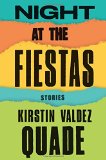
I’m going to go ahead and recommend the books I can’t wait to read myself this summer, all books I’ve read enough of to get excited about them, and that I’m chomping at the bit to start. The first is Kirsten Valdez Quade’s debut story collection Night at the Fiestas. I read two of the stories when they came out in the New Yorker, and each made me want to read all that Quade has ahead of her. Then there’s Aleksandar Hemon’s new novel, The Making of Zombie Wars. I’ve read every word of Hemon, who holds a real claim to most-exciting-writer-in-America. Can’t wait to devour this one. Finally there’s Andrew Ervin’s debut novel, Burning Down George Orwell’s House, about a former ad exec who, ironically enough, takes a long break on the island where Orwell wrote 1984. I’m a big fan of Ervin’s first book, a collection of novellae, and can’t wait to give this novel the time it deserves. That’s what the summer’s for.
Rebecca McClanahan, Advisory Board

Since I believe James Baldwin is our most important 20th-century essayist and an amazing prose stylist, I often revisit his work, including The Fire Next Time, which I reread a few months ago. Published in 1962, this work has never been more timely. And though the news Baldwin delivers — about racism, inequality, and the abuse of power — is bleak at times, his message of possibility persists: If we “do not falter in our duty now, we may be able . . . to end the racial nightmare, and achieve our country, and change the history of the world.”
Set in modern-day Minneapolis, Charles Baxter’s newest book of stories, There’s Something I Want You to Do, is more than a showcase for the signature mix of humor, pathos and moral depth that fans of Baxter’s (I am one) have come to count on in his work. The book is also a model of shapeliness and ingenuity. Each of the 10 interrelated stories is titled for either a virtue (“Bravery,” “Loyalty,” etc.) or a vice (“Lust,” Sloth,” etc.), and each also contains what Baxter describes as a “request moment” that sets the story in motion and reveals the emotional and spiritual complexity of its characters.
Joyce Carol Oates, Advisory Board
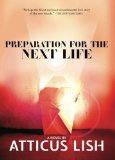
Preparation for the Next Life, by Atticus Lish
The Uncanny Reader: Stories from the Shadows, edited by Marjorie Sandor
Salmagundi 50th Anniversary, ed. Robert & Peggy Boyers
Conjunctions 64: Natural Causes, ed. Bradford Morrow
These special issues of literary journals are large as any book, and would seem to deserve a long shelf life and many readers.
Ann Patchett, Advisory Board
I touch my forehead to the floor in deference to Abigail Thomas and her beautiful new memoir What Comes Next and How to Like It. It’s a masterclass in what it means to be alive, to age, to love, to survive everything for a while. If you haven’t read her classic A Three Dog Life, well, you have that to look forward to as well.
Mary Elizabeth Bunzel, Trustee
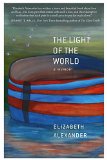
The Light of the World by Elizabeth Alexander. With a poet’s sensibility — words deftly chosen, images that satiate the senses, and, above all, a fearlessness of heart — Elizabeth Alexander’s memoir of love and loss is one of the finest I have read. Just after his 50th birthday, Alexander’s husband, Ficre Ghebreyesus, chef and painter, dies unexpectedly. Her description of that day is one that will elicit multiple readings. But it is her tone throughout, steady, joyful, always open and vulnerable, that the reader cleaves to. We may think we know her as the poet who wrote and recited “Praise Song for the Day” at President Obama’s first inauguration, but through this memoir we learn to know Elizabeth Alexander as wife, friend and lover of Ficre. And we mourn his loss as well.
Robert Hallinan '74, Trustee
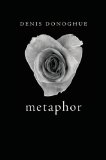
Try the astounding first novel by Atticus Lish, Preparation for the Next Life. An undocumented Uighur woman in the nether regions of New York’s outer boroughs learns early to “Forget living like an American” and to hide in its boiling cityscape. An Iraq War veteran hunkers in his rented cellar room as though still under fire. Danger, malice and disaffection haunt this sobering love story, a different perspective on the American Dream. The woman won’t leave me still.
One book of poems I slip back to is Szymborska’s New and Collected Poems. Sometimes her poems seem deceptively simple but her thought is profound, positive, even encouraging. Although this Nobel Prize winner calls “the joy of writing. / The power of preserving,” she also says, “I won’t retain one blade of grass / as it’s truly seen.” This book is full of happenstance, doubt, uncertainty, “ifs.” Read a poem a day all summer.
You don’t have to agree with everything Denis Donoghue says in his luminous meditation Metaphor to delight in this appreciation of this figure of “deft dissonance,” revolutionary and prophetic, this “phantasmal chaos of association.” Donoghue takes us in unexpected directions and gives new life to old favorites from Shakespeare, Heaney, Keats, Coleridge, Proust, Eliot (T.S. and George), and many others. And I think he would say that’s what metaphor is all about. Lucid and eminently readable.
Finally, no, you may not start the recently released English translation of Volume 4 of Karl Ove Knausgaard’s remarkable My Struggle. You have the whole summer so start with Volume 1. It is mesmerizingly good, if sometimes mystifyingly so. Is it a memoir? I think not. Is it a novel? You decide. Entertaining, fascinating and a bit unsettling. While reading, feel free to stroll around your apartment intoning aloud his name in your most mellifluous fake Scandinavian accent.
Karen Uhlmann, Trustee
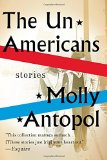
Reading The Other Language, Francesca Marciano’s debut collection of short stories, was like taking a sensual, yet disturbing vacation. Set in exotic places including India and Italy, the stories took me to worlds of seven-star hotels, incredible meals, beaches and jasmine. Marciano is Italian, although she writes in English, and her protagonists are mainly women whose lives are approaching major upheavals. Marciano hones in on the small things — a dress, a dream, a trip — which create the ripple that shifts these lives. I am now reading The UnAmericans by Molly Antopol, an expert storyteller, who explores the experiences of old-and-new-world Jews with exquisite detail. David Gates’s new collection, A Hand Reached Down to Guide Me: Stories and a Novella, is next on my list.
Stella Ryan-Lozon '13, Assistant Managing Editor
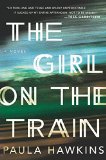
I did not expect to pick up a book about diabolical talking cats this spring. Lynn Truss’ Cat Out of Hell surprised me, and I recommend the comical and dark adventure eagerly. If you’re looking for a quick and enthralling read, this book will take up an afternoon and stick in your mind well after the sun sets. On a similarly dark, but not so comical note, I am currently devouring The Girl on the Train by Paula Hawkins. A fast-paced thriller, this book is hard to put down and a perfect vacation read.
Amy Blumenthal, Editorial Consultant
Summer at last! I’m eager to dig into these recent, not-to-be-missed publications from a few of our talented editors:
The Last Flight of Poxl West, a novel by Daniel Torday '00 (St. Martin’s Press, March 2015)
Testament, by G. C. Waldrep (BOA Editions, May 2015)
Scavenger Loop: Poems, by David Baker (Norton, May 2015)